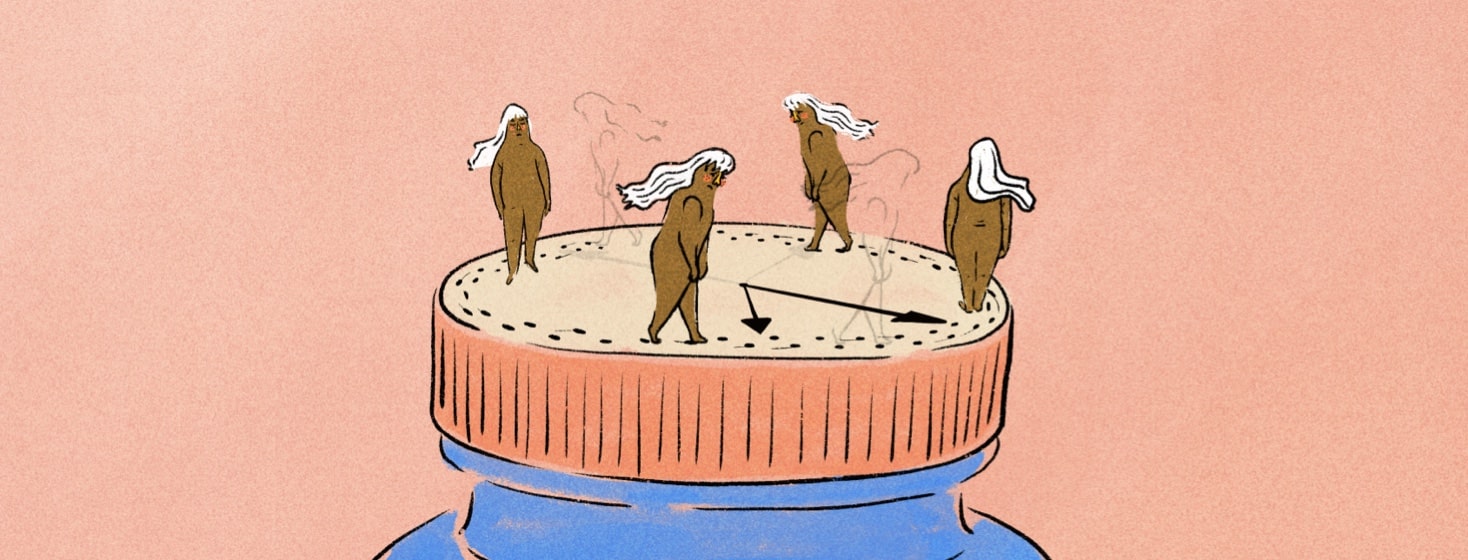Living With Treatment-Resistant Depression
When I was first diagnosed with depression almost 20 years ago, I thought it was no big deal. Of course, I was 20 years old and in college, so what did I know? I assumed I would be put on medication and that it would go away.
Not so much.
A treatment-resistant diagnosis
In a period of 10 years, I went through multiple diagnoses, several anti-depressants, a handful of anti-psychotics, many psychiatrists, different types of therapy even and four different treatments.
The last psychiatrist I saw said I had treatment-resistant depression, and medications alone were unlikely to help me. If he said anything after that, I didn't hear it. Tears crowded my eyes and heat rolled down my body.
The only thing I could think was betrayal. It was a weird thing to think, and I remember that, but my brain had betrayed me. My unruly neurons were at it again, and I sat there and thought I'd never be happy again.
Are there therapies for treatment-resistant depression?
I researched different therapies and started with transcranial magnetic stimulation (TMS), a procedure that uses magnetic fields to stimulate nerve cells in the brain to improve symptoms of major depressive disorder. It's non-invasive and easy to do, so I did it.
I didn't go into the process with an open mind, honestly, and it didn't work. Truth be told, it was the doctor's first time performing TMS, so I'm not sure he was doing it correctly. It was a total let down.
Trying a nasal spray for depression
I also used a prescription nasal spray medication that's supposed to help with major depression, but that didn't work for me either. Although, if we're being honest again, I didn't go in with a positive mindset. And I think you have to with any process.
But at the time, I couldn't see that. I was just so frustrated and depressed. It was hard to find hope anywhere.
Acupuncture, ketamine therapy...?
I tried acupuncture and IV ketamine therapy. At this point, I didn't have any hope left. I turned inward and thought, "Why me?" What was so wrong with me that I couldn't be fixed? It made me more depressed and made me feel hopeless — and helpless. I hate that feeling.
I didn't have any choice but to continue as I was.
When the depression became unbearable
In the next couple of years, I became pregnant. After I had my daughter, I experienced postpartum depression, which was difficult to deal with. Two years after that, I had my son and again had postpartum depression, but this time it was unbearable.
I thought because I was treatment-resistant depression there was no hope for me. But a friend searched for options and found a psychiatric hospital four 4 away from me that could help and offer treatment I hadn't tried.
ECT for treatment-resistant depression
I was able to be an inpatient there and stayed for 6 weeks. I had a team of doctors who promised me there was hope and treatment that would work. They changed my medications, I did intensive therapy, learned coping skills and began electroconvulsive therapy (ECT) which has an 80-85% success rate.1
Finding hope, remaining persistent
My life has changed for the better, but I know all too well it can change again in a minute. I'll never forget the frustration and helplessness I felt before I found hope.
But it's out there. If I found it, you can, too.
This or That
It's hard to acknowledge our accomplishments. Choose the affirmation you need today.
